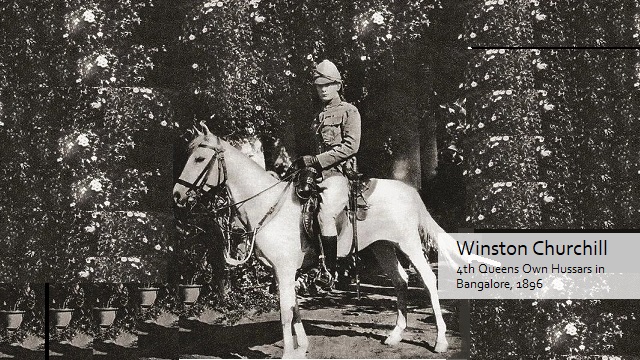Winston Churchill and Islam—Part Four

The Mad Mullah was born Saidullah Khan [sometimes also known as Sadullah, or Mastun Mullah (Ecstasy Mullah), or the Sartor Fakir or Faqir (the Bare-headed Saint)] in the village of Rega Buner in the Buner Valley and was a member of a branch of the Yousafzai tribe, another Pashtun tribe. He may have had links with the extremist Wahhabi sect, whose origins lie in Saudi Arabia. (Osama bin Laden [1957-2011], born in Riyadh, S. Arabia had been a Wahhabi also). This sect had acquired an impressive following among India’s Muslims, especially in North India, where they were known as Hindustani Fanatics (they were, of course, all Muslims despite the confusing title, which refers to India as Hindustan). They had played an important role in the Indian Mutiny of 1857; after its suppression, thousands of Hindustani Fanatics were executed. But the extent of the Mad Mullah’s links with the latter group is unclear, though his views did reflect their Wahhabi agenda.
Great and widespread as the preparations were, they were not visible to the watchful diplomatic agents who maintained the relations of the Government with the tribesmen….
So extraordinary is the inversion of ideas and motives among those people that it may be said that those who know them best, know them least, and the more logical the mind of the student the less he is able to understand of the subject. In any case among these able men who diligently collected information and observed the state of feeling, there were none who realised the latent forces that were being accumulated on all sides. The strange treachery at Maizar[1] in June was a flash in the pan. Still no one saw the danger. It was not until the early days of July that it was noticed that there was a fanatical movement in Upper Swat. Even then its significance was disregarded and its importance underrated. That a Mad Fakir had arrived was known. His power was still a secret. It did not long remain so.[2]
Churchill’s encounter with religious fanaticism was to prove crucial in his later assessment of Hitler; as Churchill biographer Andrew Roberts put it, “His writing about Islamic fundamentalism prepared him for the fanaticism of the Nazis”[3]. This conclusion is not at all as absurd as it may sound. For Islamic fanaticism shared many features- “its sheer implacability, contempt for Christianity, opposition to liberal Western values, addiction to violence, demand for total allegiance”[4]– with the political zealotry of the Nazis, something successive British Prime Ministers had never encountered, and thus were not intellectually or politically capable of recognizing its true nature in the 1930s. Churchill, on the other hand, had fought it in the 1890s, and knew its true character from early on.
Churchill observed:
It is, thank heaven, difficult if not impossible for the modern European to fully appreciate the force which fanaticism exercises among an ignorant, warlike and Oriental population. Several generations have elapsed since the nations of the West have drawn the sword in religious controversy, and the evil memories of the gloomy past have soon faded in the strong, clear light of Rationalism and human sympathy. Indeed it is evident that Christianity, however degraded and distorted by cruelty and intolerance, must always exert a modifying influence on men’s passions, and protect them from the more violent forms of fanatical fever, as we are protected from smallpox by vaccination. But the Mahommedan religion [Islam] increases, instead of lessening, the fury of intolerance. It was originally propagated by the sword, and ever since, its votaries have been subject, above the people of all other creeds, to this form of madness. In a moment the fruits of patient toil, the prospects of material prosperity, the fear of death itself, are flung aside. The more emotional Pathans are powerless to resist. All rational considerations are forgotten. Seizing their weapons, they become Ghazis — as dangerous and as sensible as mad dogs: fit only to be treated as such. While the more generous spirits among the tribesmen become convulsed in an ecstasy of religious bloodthirstiness, poorer and more material souls derive additional impulses from the influence of others, the hopes of plunder and the joy of fighting. Thus whole nations are roused to arms. Thus the Turks repel their enemies, the Arabs of the Soudan break the British squares, and the rising on the Indian frontier spreads far and wide. In each case civilisation is confronted with militant Mahommedanism [Islam]. The forces of progress clash with those of reaction. The religion of blood and war [Islam] is face to face with that of peace [Christianity]. Luckily the religion of peace is usually the better armed.
AUTHOR
RELATED ARTICLES:
Winston Churchill and Islam—Part One
Winston Churchill and Islam—Part Two
Winston Churchill and Islam—Part Three
EDITORS NOTE: This Jihad Watch column is republished with permission. All rights reserved.
SOURCES:
[1] Maizar: where British officers and Indian sepoys, though initially well-received, were killed in a surprise attack by Swat valley tribesmen.
[2] MFF, pp..27-29.
[3] Roberts, Churchill, p.968.
[4] Roberts, Churchill, p.53.


Leave a Reply
Want to join the discussion?Feel free to contribute!